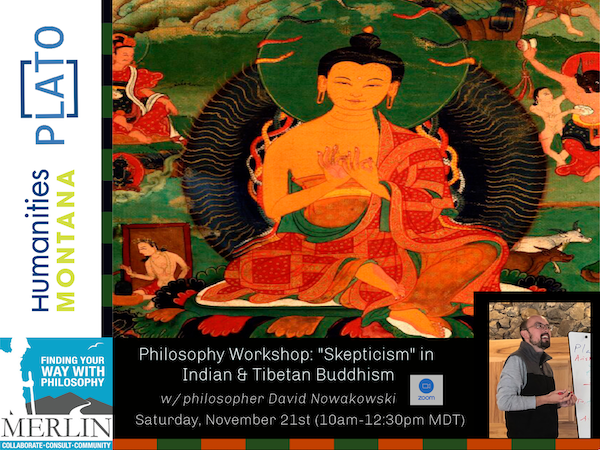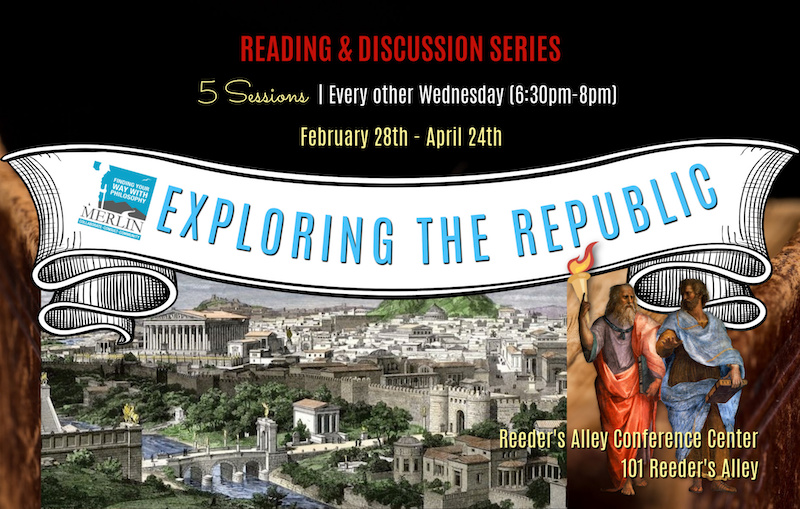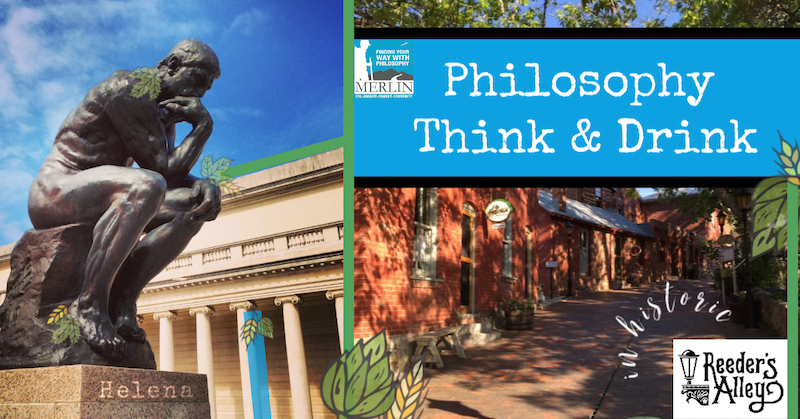
- This event has passed.
Philosophy *ZOOM* Workshop: “Skepticism” in Indian & Tibetan Buddhism — Nāgārjuna
November 21, 2020 @ 10:00 am - 12:30 pm MST
FreeWhile “skepticism” in its most strict sense is the name of certain philosophical traditions which originated in the classical Greek world, or which are descended from them, the term has also been used more broadly, to refer to philosophical traditions from other parts of the world, which bear interesting and illuminating similarities (and contrasts!) with the classical Greek skeptical traditions. For a while, there was a small cottage industry of academics turning out books and articles making such comparisons.
Workshop Video (from our Workshop Leader)
“Skepticism” in Indian and Tibetan Buddhism: Nāgārjuna
In this second installment of our workshop series, we’ll look at one of those comparison cases: the Madhyamaka (or “Middle Way”) philosophy of the Indian Buddhist philosopher Nāgārjuna (2nd c. CE). While Nāgārjuna’s philosophy had relatively little direct impact on the history of philosophy in India—hardly any later writers quote him, respond directly to his arguments, or even mention his name—Nāgārjuna’s work was transmitted to Tibet, where it became one of the two major pillars of Tibetan Buddhist philosophy—a status which endures in Tibetan monastic education down to the present day.
In this workshop, we will:
— Introduce Nāgārjuna’s life and work, within the larger context of Buddhism and Indian philosophy.
— Examine Nāgārjuna’s philosophical method: the distinctive styles of argument he uses, including his so-called “tetralemma.”
— Discuss the key doctrinal claims that Nāgārjuna’s work seems (albeit indirectly) to uphold, especially the concept of “emptiness”: the denial of any permanent, abiding nature to anything at all. (That’s a rough first approximation; we’ll spend a good bit of time making the claim more precise!)
Finally, this discussion of “permanent, abiding nature” will give us the opportunity to examine the most important thing which many of Nāgārjuna’s opponents thought to be “permanent and abiding”: our own self. We’ll take plenty of time to consider what it means for the human self to have (or lack) permanence, and what this vexed question has meant for spiritual and philosophical practice, in India and beyond.
While this workshop is designed to stand alone, we will make a few comparisons to the Pyrrhonian skepticism of Sextus Empiricus, from the previous workshop in the series. And as always, you’ll leave with suggested readings and resources for further study and exploration, should you be so inclined.
Workshop Leader: David Nowakowski. No background in philosophy is required to participate in this workshop. All ages welcome.
Other Information
Our philosophy workshops are FREE. That said, for those who still have the steady income to do so in these trying times, we could really use your financial support right now. Donations help to cover workshop leader honorariums, implementation, and resource archiving, as well as community workshop scholarships for those in need. You can make a donation by clicking here. For those facing more challenging financial circumstances, we ask that you please try to “pay it forward” with acts of kindness for your neighbors and community.
Register for Our ZOOM Workshop
Register for our ZOOM philosophy workshop here. (Once you register, you will receive an e-mail with information about how to join the meeting & a link to do so).
**For those who have not used Zoom before on your computer, click here to do a test run and ensure your system is working properly: https://support.zoom.us/hc/en-us/articles/115002262083-Joining-a-test-meeting.**




